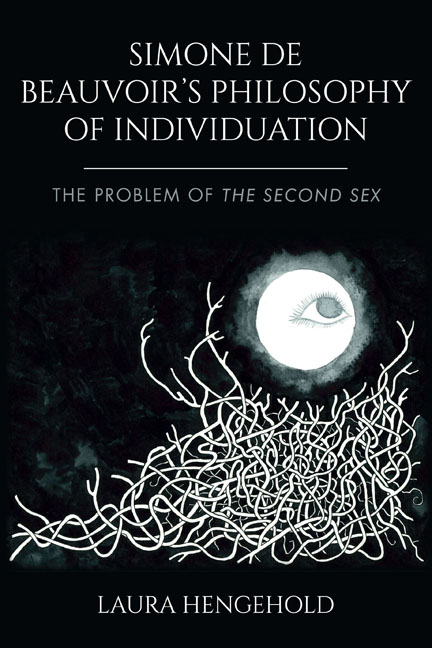3 - Lived Experience
Published online by Cambridge University Press: 23 June 2018
Summary
In the Introduction to The Second Sex, Beauvoir concludes her reflection on whether male-female relations might or might not resemble various historical examples of Hegel's master-slave dialectic with the observation that ‘The division of the sexes is a biological given, not a moment in human history. Their opposition took shape within an original Mitsein, and she has not broken it’ (SS 9/1:19).
Heidegger would be loath to identify Mitsein with a biological given, which seems at first to be the drift of Beauvoir's phrasing. ‘Being with one another’, Heidegger writes, ‘is based proximally and often exclusively upon what is a matter of common concern in such Being.’ In fact, the place of the biological body in Heidegger is almost as obscure as the place of being-with, which he generally regards as a distraction from authentic engagement with the activity of existing. But Beauvoir is not suggesting that the Mitsein is biological, or contrasting biological division with historical division; rather biology (like history) is also experienced by human beings within their social form.
A society is not a species: the species realizes itself as existence in a society; it transcends itself toward the world and the future; its customs cannot be deduced from biology … It is not as a body but as a body subjected to taboos and laws that the subject gains consciousness of and accomplishes himself. (SS 47/1:75)
Our habits of being-with contribute just as much to the production of sense and emerge from this production as do our private experiences. In Volume 2 of The Second Sex, Beauvoir describes concrete situations in which sexist sense produces subjects and objects of immanence; that is, behaviours and experiences corresponding to an unnecessarily and unjustly blocked individuation. This is the form that Mitsein takes for men and women in the society of her time – still far too often in our time.
- Type
- Chapter
- Information
- Simone de Beauvoir's Philosophy of IndividuationThe Problem of The Second Sex, pp. 58 - 94Publisher: Edinburgh University PressPrint publication year: 2017



